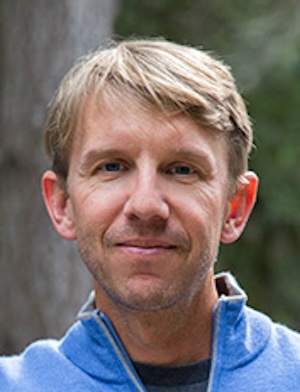Campus News
UC Santa Cruz research will harness advanced AI to better measure, predict climate-change impacts
Two UC Santa Cruz research projects designed to leverage advanced forms of artificial intelligence to improve how scientists measure and predict the effects of climate change have won funding from a $20 million investment by the National Science Foundation.

Ashesh Chattopadhyay
Two UC Santa Cruz research projects designed to leverage advanced forms of artificial intelligence to improve how scientists measure and predict the effects of climate change have won funding from a $20 million investment by the National Science Foundation (NSF).
A total of 25 projects across the country will receive NSF funding from the Collaborations in Artificial Intelligence and Geosciences (CAIG) program, which aims to promote interdisciplinary collaborations among geoscientists, computer scientists, mathematicians and others to drive transformative discoveries, innovations, and solutions. The CAIG grants are also intended to expand access to education and training opportunities for using AI in geosciences research.
Better weather and climate prediction
AI models of weather and climate can be important tools to predict the effects of extreme events such as heat waves and floods resulting from climate change. However, these models have traditionally been limited by “hallucinations,” in which, for predictions more than 15 to 20 days away, the models start showing scenarios that are physically impossible.
UC Santa Cruz Assistant Professor of Applied Mathematics Ashesh Chattopadhyay will lead a project to make better, realistic models of weather and climate—at a fraction of the cost of traditional models. Chattopadhyay will work alongside Associate Professor of Earth and Planetary Sciences Nicole Feldl and University of Exeter Professor of Mathematics Geoff Vallis, who was recently a visiting professor at UCSC. The researchers were awarded about $898,000 for the project.
“Over the years, we have made significant progress in terms of understanding how these models behave on scientific data, what causes them to fail, and how we can make them work most effectively,” Chattopadhyay said. “This project puts these ideas together to demonstrate our AI-based modeling capabilities at scale for the Earth system and validates it with rigorous physics-based models.”
The researchers will be pursuing the essential question of what makes the models hallucinate in order to mitigate these biases and build physically consistent AI climate emulators. They will take a rigorous mathematical approach to make sure models can reliably perform short-term forecasting and long-term climate predictions.
The grant will support the training and development of students in the workforce that can perform cutting-edge research in atmospheric physics, scientific computing, and in order to address the pressing challenges of climate change.
This project will also contribute to the NSF National Discovery Cloud for Climate initiative, a pilot effort to build an integrated national-scale cyberinfrastructure capable of supporting end-to-end climate research and education.
Monitoring ocean warming

The second project at UC Santa Cruz will be led by J. Xavier Prochaska, distinguished professor of astronomy and astrophysics. His team will combine cutting-edge AI with vast datasets to gain new insights into ocean dynamics and disseminate these and related software to the wider community. Specifically, they plan to develop a sophisticated AI technique to analyze satellite measurements and high-resolution ocean model outputs.
This system will detect and measure ocean fronts—boundaries between water masses with different properties—using multiple types of satellite data. The system will also estimate the heat content of the ocean’s upper mixed layer by examining fronts and other remotely observable quantities over time. A key aspect of their approach is designing the AI system to be interpretable, allowing scientists to understand how it reaches its conclusions.
The researchers will also develop methods to quantify the uncertainty in the AI’s predictions, a crucial issue for scientific applications. By applying this AI system to approximately 15 years of satellite data, the team hopes to track changes in ocean fronts and mixed-layer heat content over time. This could provide valuable insights into how various physical processes, from large ocean currents to smaller-scale phenomena, influence the ocean’s heat storage.
The NSF awarded approximately $1 million to fund the project—with over $500,000 to UC Santa Cruz—to be done in collaboration with the Computational Climate and Ocean Group led by computer-science professor Maike Sonnewald at UC Davis.
“I’m thrilled to receive this award and wish to acknowledge UC Santa Cruz for supporting the Applied AI Initiative which helped me start a transition into oceanography, and the Simons Foundation for funding the completion of my pivot into oceanography,” Prochaska said. “With this grant, Professor Sonnewald and I hope to accelerate the application of AI in physical oceanography. And, we hope to improve our ability to estimate the heat content of the upper ocean, a quantity which may be heavily impacted by our climate crisis.”
Other projects that won funding will focus on topics such as enhancing our understanding of earthquake dynamics, and improving natural-resource management and decision-making in response to climate change. These projects support key technology areas, including cyberinfrastructure and advanced computing, highlighted in the 2022 federal CHIPS and Science Act.
To learn more about CAIG and see all the research projects that won funding, please see the full NSF announcement.